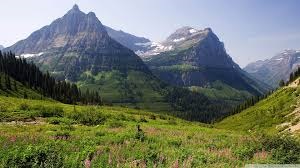New research Professor Solomon Dobrowski shows that organisms will face more hardships as they relocate when climate change makes their current homes uninhabitable.
Dobrowski and co-author Sean Parks, propose a new method to model how fast and where organisms will need to move to keep pace with climate change.
Mountains support roughly a quarter of the globe’s terrestrial biodiversity, contain about a third of its protected areas and house nearly half of the world’s biodiversity hotspots.
One reason for this biodiversity is that complex topography within mountains creates diverse climates within close proximity to one another.
One way scientists measure how vulnerable a site is to climate change is to estimate how far organisms at that site need to move to maintain a consistent temperature as the Earth warms. The diversity of climates in mountain landscapes means that when temperatures rise, organisms might have to only move a short distance to get to a cooler home.
However, Dobrowksi and Parks show that measuring the distance from one area of suitable climate to the next doesn’t account for the resistance organisms will encounter as they traverse areas with very different climates, like a warm valley between two mountain peaks.
“It’s not enough to just measure how far an organism will have to move in order to keep up with climate change,” Dobrowski said. “We also need to look at how much organisms will be exposed to dissimilar climates along the way. Once we do that, we find that even short movements in mountainous areas expose organisms to large climate differences. This may prevent plants and animals from being able to maintain a suitable climate as the earth warms.”
Dobrowski and Parks suggest that areas within mountains are more climatically isolated and thus more vulnerable to climate change than previously reported.
Source: Science daily
N.H.Kh

